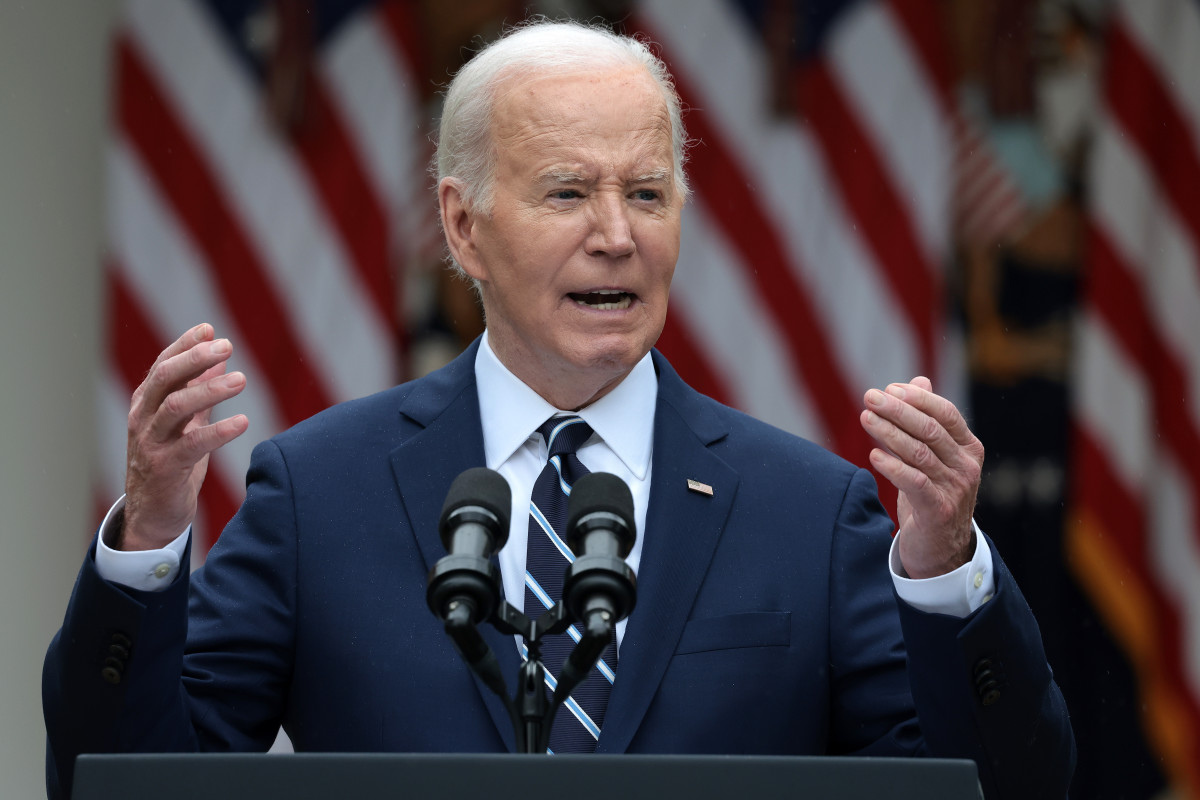
The Biden Administration's latest moves against Chinese EVs are its most direct yet.
Related: Former Audi designer exposes the benefits of working with a Chinese automaker

President Joe Biden on May 14 revealed steep tariff increases on a series of targeted imported goods from China, including electric vehicles, battery components, computer chips and medical supplies — a strategic move made amidst his bid to remain in the Oval Office in November.
The new policy keeps and builds on some existing tariffs that were enacted during the last administration. The full brunt affects more than $18 billion of imported goods within very specific industrial pressure points, including steel and aluminum, semiconductors, electric vehicles (EVs) and the materials to make its batteries, solar cells and cranes.
"American workers can out-work and out-compete anyone as long as the competition is fair, but for too long it hasn't been fair," Biden said during a May 14 speech at the White House Rose Garden. "We're not going to let China flood our market."
The most jarring of the tariffs affects Chinese-made electric vehicles, which will increase this year from the Trump-era 25% to 100%, resulting in a total penalty of 102.5% for every Chinese-badged vehicle that lands stateside.
In his brief remarks at the Rose Garden surrounded by industry leaders and labor union representatives, Biden said that it is "unfair" for Chinese companies to create cheap products such as low-cost EVs because of subsidies from its government, and that China's practice of producing more than the market demands creates an unequal playing field.
"We’re not going to let China flood our market, making it impossible for American automakers [...] auto manufacturers to compete fairly," Biden said. "I’m determined that the future of the electric vehicles will be made in America by union workers. Period. And we’ll do it by following international trade laws to do it."
A long time coming:
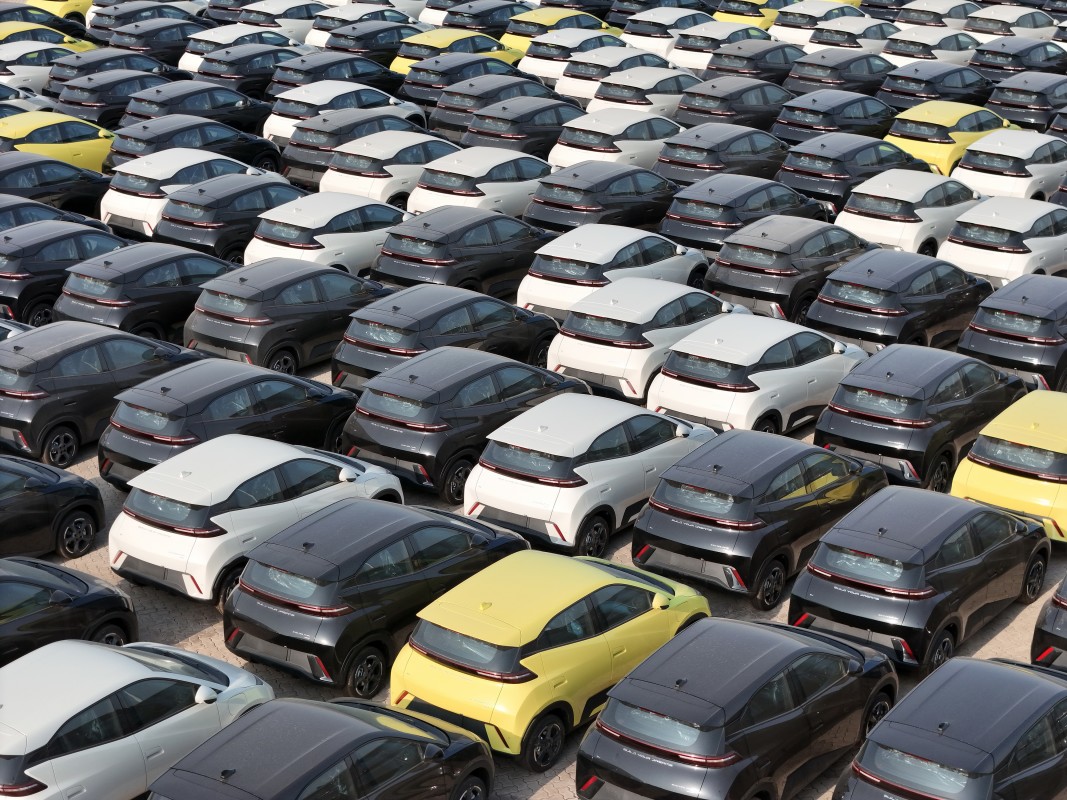
The blockbuster tariff on Chinese EVs comes after mounting pressure from different political forces in Washington, including influential members of the Senate, political rivals, as well as members of Biden's administration.
Reuters reported that during a break in his hush-money trial in New York City on May 14, presumptive Republican presidential nominee and former President Donald Trump told reporters that the new tariffs enacted by his political rival are not enough and should be applied to much more imported products from China.
"They've also got to do it on other vehicles and they have to do it on a lot of other products," he told reporters. "Because China's eating our lunch right now. ... They have to do it on much more than electric vehicles."
Additionally, he criticized Biden for not taking action much sooner.
"He wants to put a big tariffs on China, which is the suggestion that I said, 'Where have you been for three and a half years?' They should have done that a long time ago," he said.
On May 8, Commerce Secretary Gina Raimondo warned of "extreme action" on Chinese auto imports following the conclusion of a national security investigation into the matter that was initiated by Biden himself back in February.
Politicians on both sides of the aisle including Sens. Marco Rubio (R-FL), Josh Hawley (R-MO) and Sherrod Brown (D-OH) have shown support for heavy tariffs, or a complete ban on Chinese EV imports in separate letters and legislative proposals.
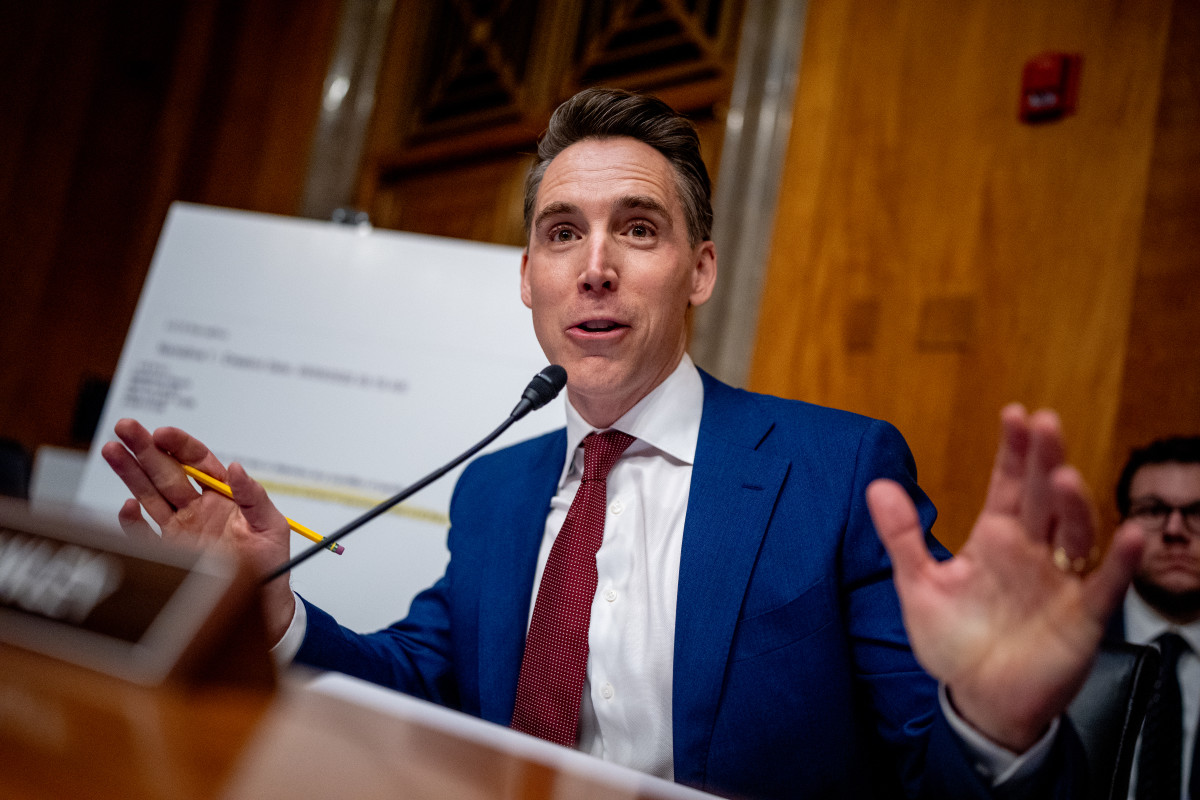
In a proposal called the "Protecting American Autoworkers from China Act" made back on Feb. 28, Hawley proposed raising base tariffs on cars from China from 2.5% to 100%, which would result in a total penalty of 125% on all imported cars from China. Additionally, the higher penalties would apply to cars manufactured by companies of Chinese origin, no matter where they are made – shutting a theoretical Mexican manufacturing "back door" for Chinese automakers.
“If Joe Biden wants to support American autoworkers, he should start by protecting them from the existential threat posed by China,” Hawley said. “We must put American workers first, bring jobs back to American soil, and reject radical climate mandates that make China rich and America poor.”
More Business of EVs:
- Tesla makes another harsh last-minute decision, frustrating students
- Forget Tesla's Supercharging, Polestar's new charging tech can charge even faster
- EVs have a problem Ford's partner aims to fix
Related: 'TikTok generation' is getting enticed with Chinese EV brands
Experts weigh in:
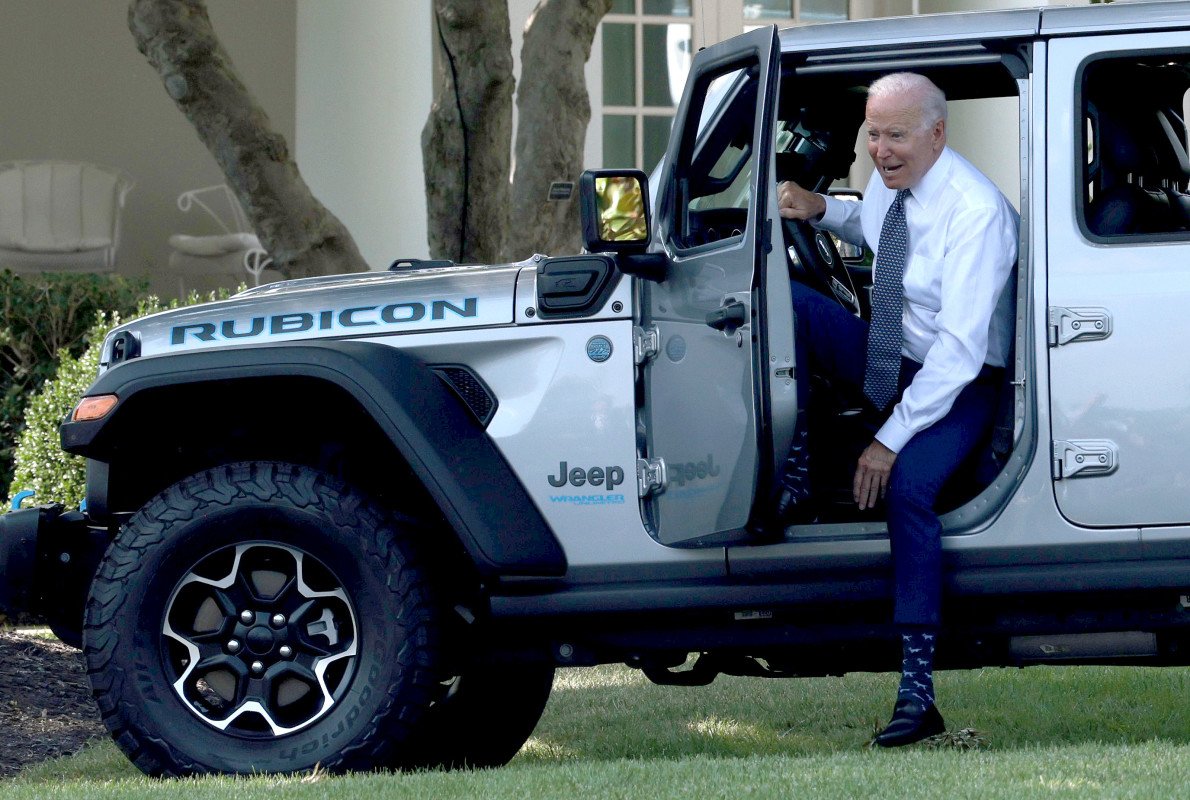
In remarks to ABC prior to the May 14 announcement, Ian Bremmer, the president and founder of political consulting firm the Eurasia Group, warned that enacting higher tariffs such as the one enacted today could go against the whole point of Biden's climate message, noting that cheaper Chinese-made EVs being made available on the U.S. market could've made an impact on EV adoption rates.
"The interesting political point here is that Biden is meant to be the pro-climate president," Bremmer said. "But we don't support reducing emissions when it comes at the expense of American labor. And we don't care if that means it's less competitive and the Americans are going to have access to more expensive, low quality electric vehicles. That's the message that they're sending."
Additionally, the tariffs that were unveiled today could unknowingly affect the companies they were meant to protect.
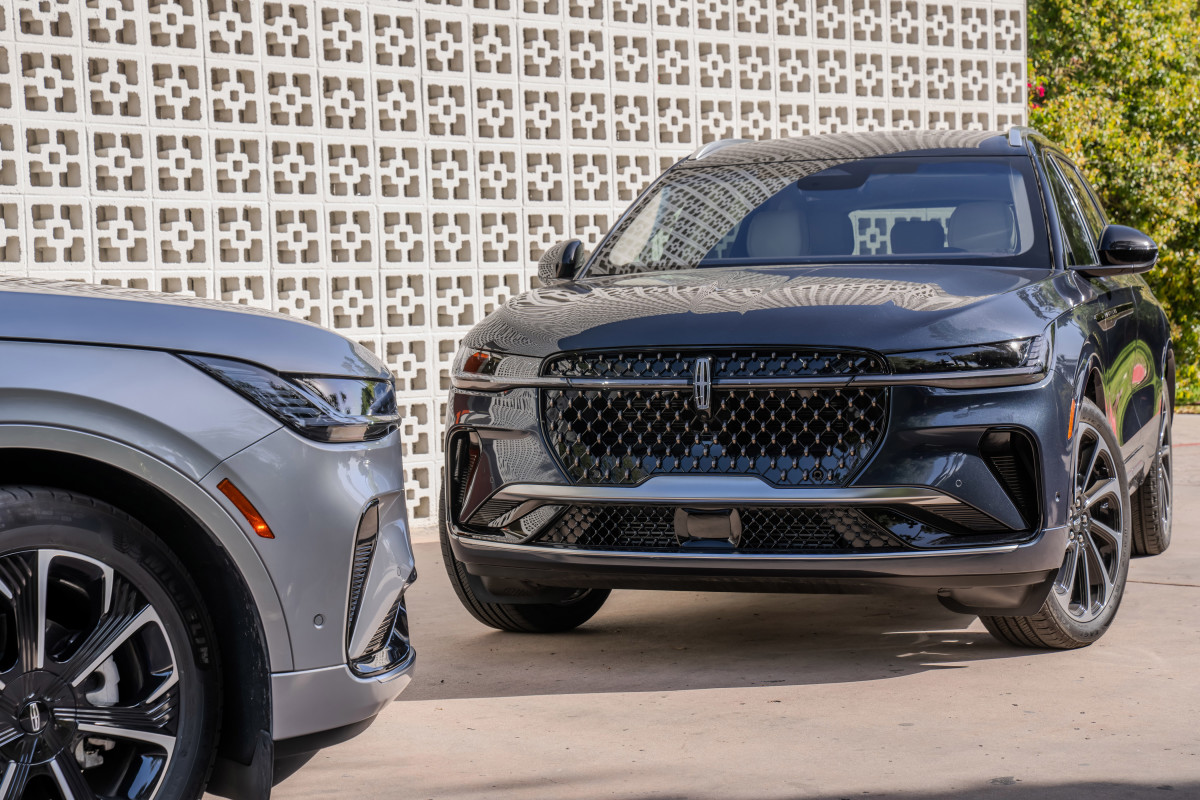
Ford
According to the most recent government data seen by Reuters, the United States has exported 155,337 vehicles to China's ports in 2021 - the latest year where data is available.
In the same year, 64,067 vehicles have been unloaded from China onto American soil. According to AutoForecast Solutions Global Vehicle Forecasting VP Sam Fiorani, most of these vehicles are badged with some very familiar American names: Buick and Lincoln — respective products of General Motors (GM) , and Ford (F) .
Fiorani warns that Biden's latest tariffs can push Detroit brands out of the second-largest auto market, a place where local brands like BYD (BYDDY) are are being sold competitively alongside them. Additionally, he emphasizes that the resulting consequences can influence moves in countries beyond China where Chinese cars are sold.
"Currently, Buick and Lincoln import vehicles from China in significant numbers, while both automakers are struggling with market share in China. GM’s recent losses in China hint of deeper troubles than just tariffs. Keeping market share in that country is important based on the size and potential size of the Chinese market," Fiorani told TheStreet.
"Local brands in China have developed competitive vehicles that appeal to local buyers, to the detriment of the global brands. If Chinese vehicles are kept out of the United States and Europe, foreign brands will be squeezed out of China as well as emerging markets in South America, Southeast Asia, and Africa."
Related: Veteran fund manager picks favorite stocks for 2024







